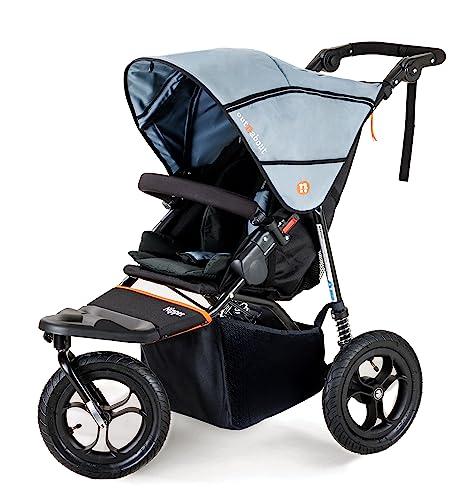How To Make An Amazing Instagram Video About Pram
Understanding Prams: A Comprehensive Guide
Prams, brief for 'perambulators', are an important tool for moms and dads and caretakers with babies. These wheeled devices offer a safe and comfy way to transfer babies, making outings more manageable. However, prams are not just about benefit; they are also an important aspect of kid advancement and security. This short article looks into the types, benefits, and considerations when choosing a pram, ensuring that parents are knowledgeable in their selection.
Kinds of Prams
Prams vary extensively in regards to style, performance, and functions. Comprehending the types offered can help parents select the ideal one for their requirements.
1. Traditional Prams
Standard prams are classic baby carriages that normally feature a deep lying-down cot. They use a smooth trip, enabling infants to lie flat and easily when out and about.
2. Travel Systems
These are versatile choices that integrate a stroller and a vehicle seat, making transitions seamless for parents who often travel. Travel systems help with simple transfer between vehicle and pram without disturbing the baby.
3. Umbrella Strollers
Light-weight and compact, umbrella strollers are ideal for moms and dads who require a transportable alternative. Though they frequently have fewer functions and might not appropriate for newborns, they are excellent for older babies and young children.
4. Jogging Strollers
Created for active parents, running strollers have larger, more stable wheels and a sturdy frame, allowing them to handle bumpy surface. These are best matched for families who enjoy outdoor activities and want to include fitness into their parenting routine.
5. Double Prams
For families with twins or brother or sisters of close age, double prams supply area for 2 children side by side or one behind the other. They offer similar safety and comfort features as single prams but deal with several guests.
Advantages of Using a Pram
Prams provide various benefits for both kids and moms and dads:
Safety: Prams offer a safe and enclosed space for babies and young children, safeguarding them from potential hazards.
Convenience: Many prams are created with cushioned seats, sunshades, and adjustable recline positions to keep babies comfy throughout trips.
Convenience: Prams make it simpler for parents to get around, particularly in city environments where bring an infant can end up being troublesome.
Versatility: With various designs available, prams can adapt to different way of lives, whether it's casual walks, running, or taking a trip.
Bonding Time: Using a pram allows moms and dads to be physically near their baby while checking out and delighting in various environments together.
Selecting the Right Pram
Picking the ideal pram can be challenging given the myriad of choices. Here are some factors to consider to assist moms and dads:
1. Age of the Child
- Newborns: Look for prams that use full recline options and compatibility with infant car seats.
- Babies: Choose a flexible design that permits a transition to an upright position.
- Toddlers: Lightweight and easy-fold models can be more practical.
2. Way of life
- Urban: A compact, quickly maneuverable pram is essential for navigating city streets.
- Active: Those who jog or go on hiking journeys need to consider a robust jogging stroller.
- Travel: Models that are fast to fold and light-weight are better for moms and dads on the go.
3. Budget plan
Prams can range from affordable to high-end designer options. Determine the vital functions you require and prevent unneeded expenses.
4. Security Standards
Ensure the pram complies with regional safety policies and features safety harnesses, brakes, and sturdy building and construction materials.
5. Practical Features
Consider features like storage area, detachable seats for easy cleaning, weather canopies, and adjustable manages based upon individual preference.
Table of Key Pram Features
Kind of Pram
Key Features
Ideal Age
Cost Range
Standard Prams
Deep cot; great suspension
Newborn to 6 months
₤ ₤ – ₤ ₤ ₤
Travel Systems
Stroller and safety seat combination
Newborn onwards
₤ ₤ – ₤ ₤ ₤ ₤
Umbrella Strollers
Lightweight; easy fold
6 months onwards
₤ – ₤ ₤
Jogging Strollers
Durable wheels; safety harness
6 months onwards
₤ ₤ – ₤ ₤ ₤
Double Prams
Seats for 2 kids; differed layouts
Newborn to young child
₤ ₤ ₤ – ₤ ₤ ₤ ₤
FAQs About Prams
1. The length of time can I use a pram for my child?
The majority of prams are created to accommodate children from newborn through to about 4 years of age, depending on the model and weight limitation.
2. Can I use a pram for jogging?
Only utilize a running stroller for jogging or running. Regular prams are not created to endure such high-impact activities.
3. How do I clean my pram?
Many pram fabrics can be spot cleaned up with mild soap and water. Detachable covers frequently can be maker washed, though it's important to read the producer's directions.
4. What is the weight limit for prams?
This varies by design but generally ranges from around 50 pounds to 75 lbs. Constantly check the requirements before making a purchase.
5. How do Continuing secure my baby in the pram?
Ensure that your baby is safely secured in with the five-point harness, and never ever leave them ignored in the pram.
Picking the ideal pram is an important choice for parents, which involves weighing various elements such as safety, convenience, and benefit. Understanding the different kinds of prams readily available and their respective functions enables parents to make informed options that best fit their family's needs. By prioritizing security and performance, caregivers can make sure that strolls, runs, and trips with their kids are comfy and satisfying experiences.
